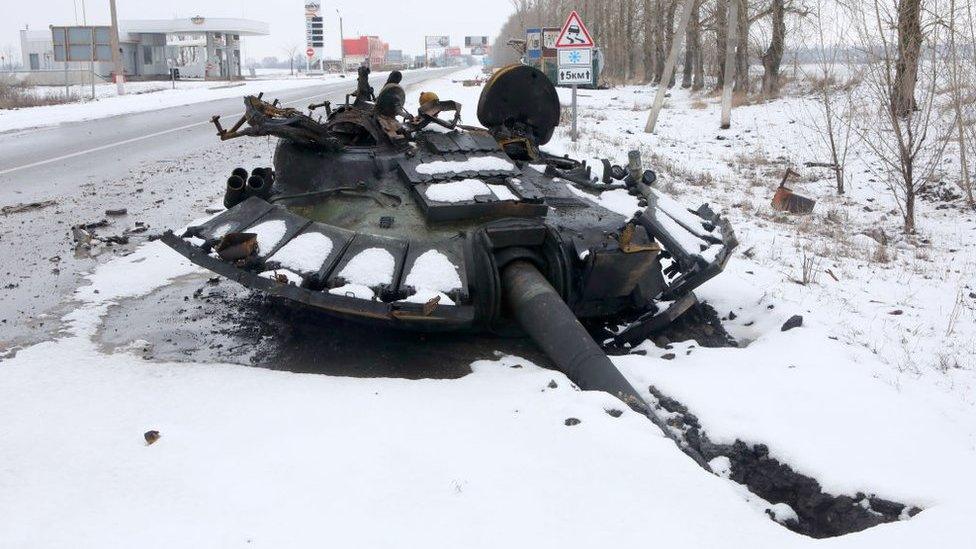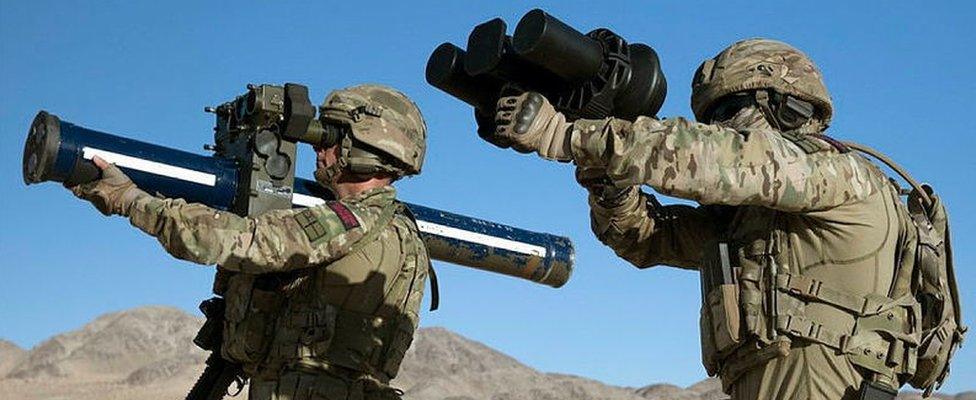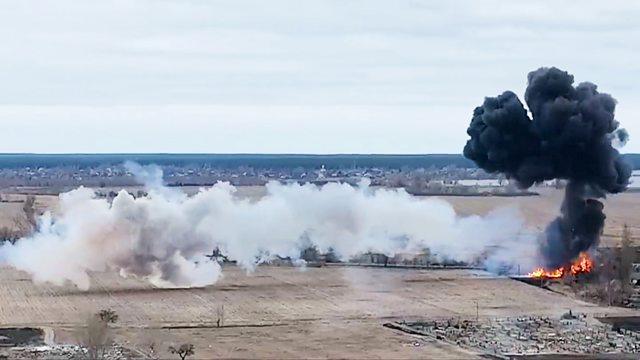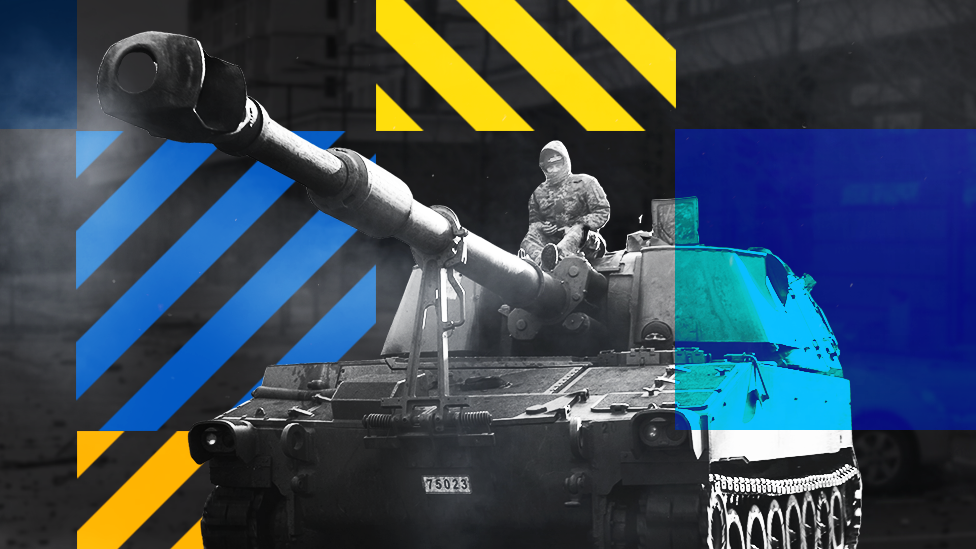Ukraine-Russia war: UK to send more anti-tank missiles
- Published
- comments

A blown-off tank turret near Kharkiv - the West has supplied anti-tank weapons to Ukraine
The UK is increasing its supply of weapons to Ukraine to help it defend itself against Russian attack, Defence Secretary Ben Wallace has said.
Before the invasion, Britain delivered 2,000 light anti-tank missiles and is now sending another 1,615.
Mr Wallace told MPs the UK would also deliver a small consignment of longer range Javelin missiles and was looking at sending surface-to-air missiles.
Small arms, body armour and medical supplies have also been sent, he added.
The UK has said it is helping "facilitate" the deliveries of these weapons but Western officials are not giving details of how the supplies are getting through.
There is some evidence that weapons supplied by the UK have already been used to destroy Russian armour.
Ukraine's military has released several videos showing Russian helicopters being shot down by surface-to-air missiles.
In a Facebook post, external, Ukraine claims Russia has lost 317 tanks, 1,070 armoured vehicles and 81 helicopters since the invasion began - the BBC has not been able to verify those figures.
Speaking in the Commons, Mr Wallace described how "indiscriminate and murderous" artillery and air strikes on civilian areas in Ukraine had wreaked "horrific devastation".
He stressed the importance of Ukraine maintaining its ability to fly and suppress Russian air attacks.
The Russians were "changing their tactics and so the Ukrainians need to too", he went on to say.
In response to a request from Ukraine, the government was exploring the possibility of sending high-velocity Starstreak manned portable anti-air missiles, he said.
"We believe that this system will remain within the definition of defensive weapons but will allow the Ukrainian force to better defend their skies."
He highlighted that the government was "bound by the decision to supply defensive systems" and not escalate the war.
Meanwhile Foreign Secretary Liz Truss, who is in Washington visiting her US counterpart Antony Blinken, has condemned Wednesday's attack on a hospital in the southern Ukrainian city of Mariupol as "absolutely abhorrent, reckless and appalling".
She also rejected Ukraine's call for the West to implement a no-fly zone over Ukraine. It would lead to a direct confrontation between Nato and Russia and that was not what we were looking at, she said.



Ukrainians would need training to use the Starstreak surface-to-air missiles
Britain started sending weapons to Ukraine before Russia's invasion of that country. More than a dozen countries are now doing the same.
Announcing the delivery of more anti-tank weapons, Mr Wallace said the UK was also "exploring" the possibility of supplying Ukraine with Starstreak surface-to-air missiles. The challenge will be how to train Ukrainians to use them, without British boots on the ground.
Practicalities of supplying weapons that Ukrainian forces know how to use is not the only limitation.
Mr Wallace stressed the government was "bound by the decision to supply defensive systems".
The West is already concerned about the response to this from Russia - one reason why the supply of Polish warplanes has proved more controversial.
Fighter jets are not just defensive weapons. Nato allies do not want to become directly involved in a war with Russia - with the danger it could spread closer to home.
Enforcing a no-fly zone over Ukraine and putting troops on the ground there is clearly seen as a step too far.

The UK is not alone in sending weapons to Ukraine, but most countries only started to send weapons in response to the Russian invasion, which began on 24 February.
In all, 14 nations have supplied arms, including Sweden and Finland, which both have a long history of neutrality and are not Nato members. They have both sent thousands of anti-tank weapons.
Germany has supplied 1,000 anti-tank weapons and 500 US-made Stinger missiles, a scourge of Soviet aircraft during its occupation of Afghanistan in the 1980s.
The Baltic states have also delivered thousands of weapons including Stingers and Javelin missiles, one of the world's most effective anti-tank weapons with a range of 2.5km (1.5 miles).
CNN, quoting a US defence official, put the total at 17,000 anti-tank weapons and 2,000 Stingers, sent overall by the US and Nato allies.

War in Ukraine: More coverage
OCCUPIED CITY: 'We are not co-operating'
RUSSIA MOTHERS: 'How do I get my soldier son back?'
EXPLAINED: Why Putin has invaded Ukraine?
IN DEPTH: Full coverage of the conflict


Do you have any questions about the crisis in Ukraine. Email haveyoursay@bbc.co.uk, external.
Please include a contact number if you are willing to speak to a BBC journalist. You can also get in touch in the following ways:
WhatsApp: +44 7756 165803
Tweet: @BBC_HaveYourSay, external
Please read our terms & conditions and privacy policy
If you are reading this page and can't see the form you will need to visit the mobile version of the BBC website to submit your question or comment or you can email us at HaveYourSay@bbc.co.uk, external. Please include your name, age and location with any submission.
Related topics
- Published8 March 2022

- Published24 February 2023
